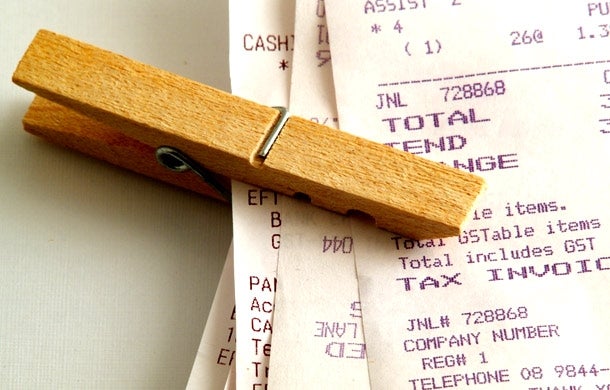10 Tips for Staying on Budget

Focus on Savings
By now, you've set up your budget. You know how much money you have. But you could still use some help staying on budget. Here are some tips that can help you stick to your budget and get ahead on that major chase purchase:
Determine the amount of your budget that you can afford to save each month. Have it direct-deposited to your savings account, or to your mutual fund. Wherever you decide to keep your savings, make sure you put money into it every month. That savings will make a big difference for you later.

Use Cash
Take out enough cash to last one week at a time. Make up your mind that the cash you have is all you get for discretionary expenses, or things that you could live without, each week. It's much easier to turn down a $60 pair of shoes when it will take the last of your week's cash than it is when you just have to swipe a credit card.

Cut Bad Habits
Whether it's alcohol or tobacco, if you use much of either, you know how expensive bad habits can be. Stop smoking and drinking, and put the beer/cigarette money toward your other expenses. You'll see your billscome down -- and feel your health improve -- in no time. You'll also save on health care expenses down the road, and you may become eligible for lower insurance premiums.

Share the Responsibility
Make sure you're not the only member of your household concerned about your budget. If you're working hard to save money, but your spouse is out spending you into debt, you're fighting a losing battle. Sit down together and make a plan to determine how much spending money you should each have. Then, check in every week to see how well you're doing. If the entire family shares the responsibility for the budget, everyone can cut back just a little and make a big difference. One person shouldn't have to shoulder the entire burden alone.
Pay Down Debt
If you have credit card debt, you may feel like it's going to take forever to pay it off. But you can get ahead by choosing one card -- ideally, the one with the highest interest rate -- and paying as much as you can on it every month. If you have other cards, pay the minimum balance on those until you've paid off the first card. Then, choose the next card and pay extra on it while you pay minimums on the others. If you pay only the minimums on all your cards, you'll be paying a lot more in interest than you may realize.

Keep Your Receipts
You probably monitored your expenses for several weeks to make a budget. Once the budget is made, though, it can be tempting to stop keeping up with every little expense. But keeping track really can help you stick to your budget. Save your receipts, and write down the places you spend money. You'll be less likely to overspend if you realize how much money has actually gone through your hands.

Balance Your Checkbook
Do you balance your checkbook regularly? If not, it's a good habit to start. If you're on a tight budget, a couple of small mistakes can lead to overdraft charges and insufficient funds in your account. If you balance up every time you get a bank statement, you can make sure your ledger stays in the black.

Analyze Your Spending
Look through your budget and all your receipts. Can you find an expense that can be cut? Maybe you could bring your lunch to work twice a week, or set up a carpool with a friend. Just cutting out restaurant and gas costs can help increase the amount of money you have available for savings and purchases.

Special Accounts
If you find that you keep reaching into your savings, set up a CD or other account with early withdrawal penalties. Banks and other institutions pay more interest if you'll agree to let them use your money for a longer amount of time. Putting your savings into a yearly CD will yield more than a three-month note would

Be Flexible
Remember that life is unpredictable, and things happen that are out of our control. When you make a budget, try to allow some extra money for variable expenses. And, be gentle with yourself if you go over your budget sometimes. It can be hard to get back on track if you let yourself get too frustrated over a mistake or two.
Following these tips can help you stick to your budget. You can prepare for a major purchase without having to borrow more than is absolutely necessary, and you can feel good about keeping your finances under control. Make sure you update your budget regularly, and prioritize your spending -- know what is important enough to be worth your hard-earned money. Budgeting will come more easily the longer you stay with it, and you will reap the rewards in years to come. Above all, remember that budgeting is worth the effort. Keeping on budget can make your entire life run more smoothly, since so many things are affected by your financial status.
READ ALSO:
Things you can do with old shoes
Ways to change your life at any age
Beautiful instagram pictures
Top 10 addictive games on facebookl

Comments
Post a Comment